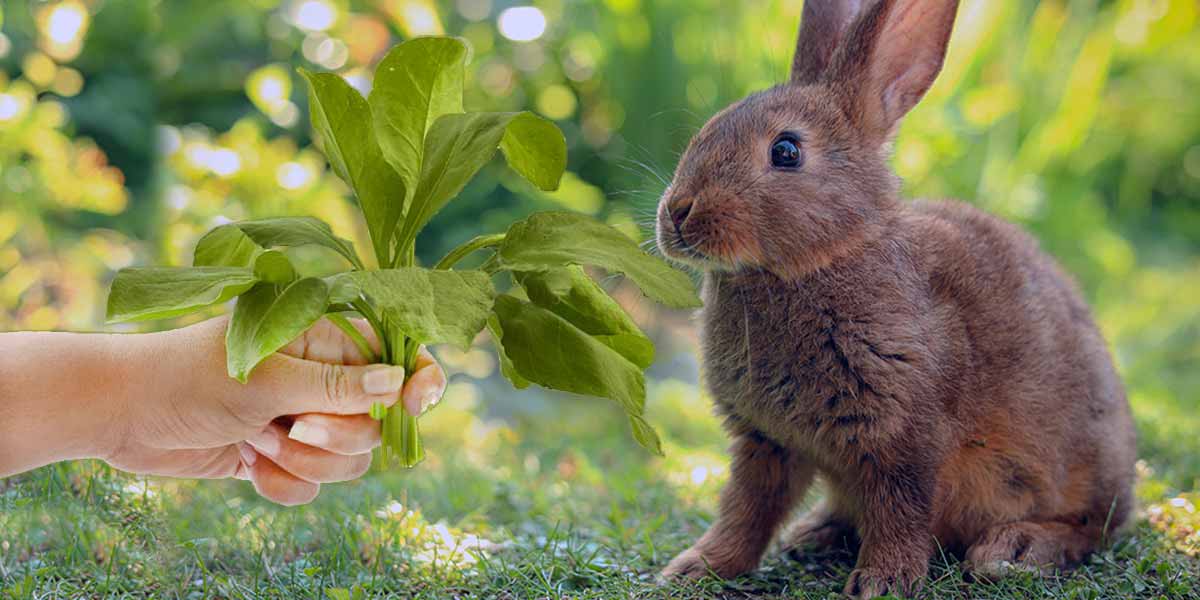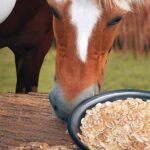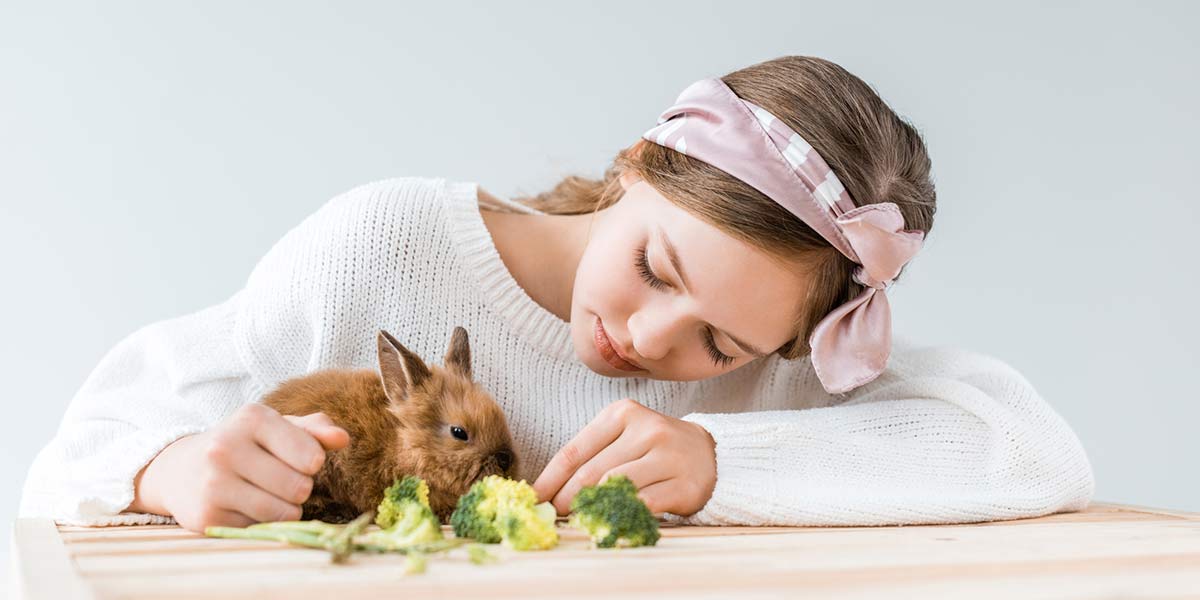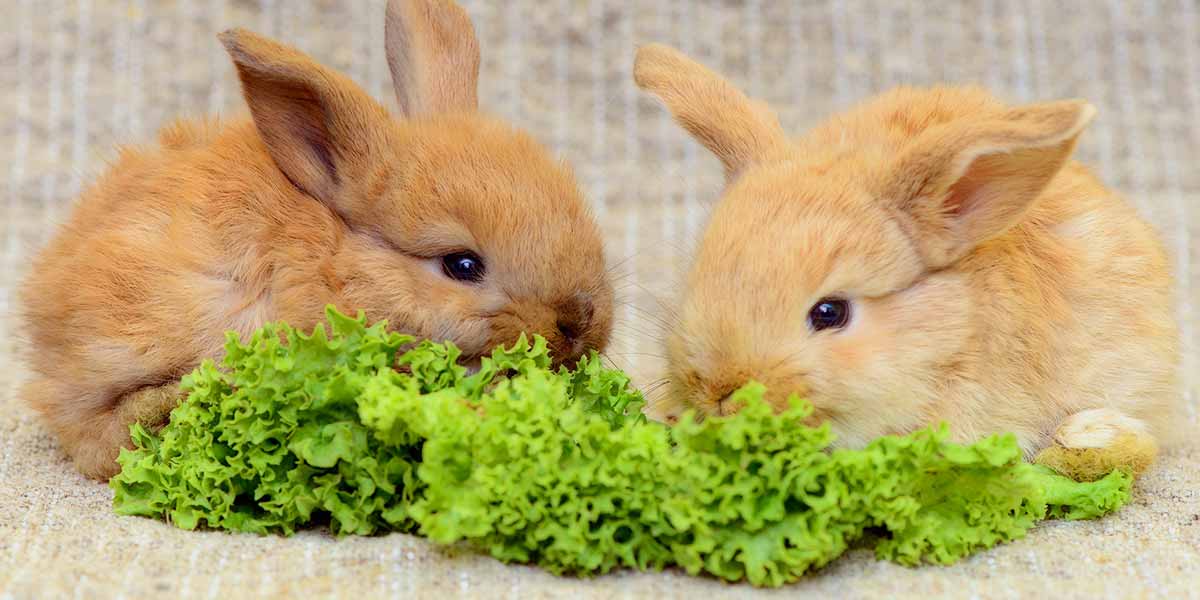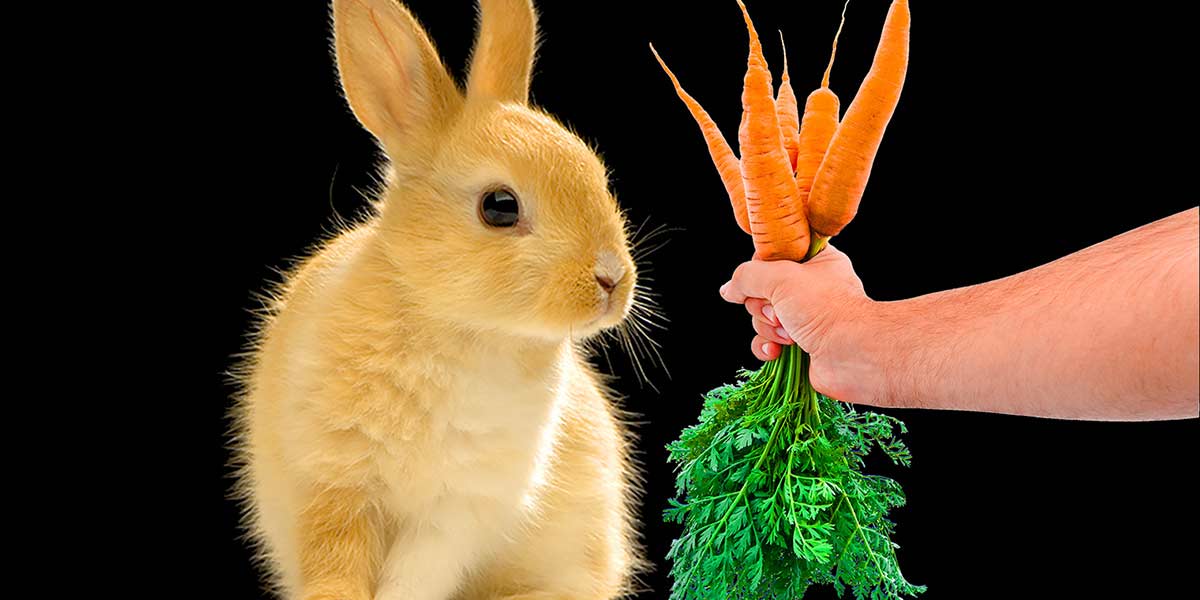I had recently decided to get a rabbit for a pet, and I had heard that rabbits love their greens. I wanted to make sure that I provided the best care for my rabbit and gave it all the nutritious food it needed. However, one of the questions I had was, “Can I feed my rabbit spinach?”.
As an affiliate, we earn from qualifying purchases. We get commissions for purchases made through links in this website’s posts from Amazon and other third parties.
Being the responsible pet owner I am, I decided to do some research to find out the answer. I was surprised to find that there were some potential benefits of feeding spinach to my rabbit. Not only could spinach provide my rabbit with a wide range of vitamins and minerals, but it could also be a great source of dietary fiber. I was excited to learn this information, but I also wanted to ensure I wasn’t taking any risks with my rabbit’s health.
So, I decided to consult with a veterinarian and discuss my concerns. After having a great conversation with the vet and getting the answers to my questions, I was confident that feeding my rabbit spinach could be highly beneficial. I learned how to feed spinach to my rabbit safely and in moderation, and I am excited to give it a try.
If you’re curious to know the answer to the question, “Can I feed my rabbit spinach?”, then join me as I explore this topic further. I’ll share my research and findings, and hopefully, you’ll learn something new in the process. So, come along, and let’s find out if this green leafy vegetable is really a good choice for your pet rabbit. Read on to discover the answer!
Can rabbits eat spinach? Rabbit food answers video:
Watch in the next video some cute rabbits eating spinach:
Nutritional benefits and potential risks of feeding your rabbit spinach
When I heard that spinach might be a beneficial part of a rabbit’s diet, I was excited to learn more. After doing some research, I discovered there are both nutritional benefits and potential risks associated with feeding rabbits spinach.
Nutritional benefits
Spinach is a great source of vitamins and minerals, like vitamins A and K, and contains phosphorus, magnesium, and iron. These are all important for a healthy rabbit diet and can help support bone health and skin, fur, and eye health. Spinach is also high in fiber and low in sugar, which is important for a balanced diet.
Feeding rabbit spinach can also be beneficial for its digestive health. The high fiber content helps rabbits stay regular and helps to prevent digestive issues. The vitamins and minerals found in spinach can also help support a healthy immune system.
Potential risks
However, there are a few potential risks to consider when feeding rabbits spinach. Spinach contains oxalates, which can bind to calcium in the body and prevent it from being absorbed. Too much oxalic acid can lead to calcium deficiency and can cause bladder stones, so it’s important to limit the amount of spinach you give your rabbit. Additionally, rabbits can be sensitive to changes in their diet, so introducing spinach slowly is important.
In short, spinach can be a beneficial part of a rabbit’s diet, but be sure to limit the amount you feed and gradually introduce it. If you have any questions or concerns, it’s always best to discuss them with your veterinarian.
Can I feed my rabbit spinach? Types of spinach suitable for rabbits:
Not only spinach is high in essential vitamins and minerals, but it’s also low in calories, making it a great snack for rabbits. However, not all types of spinach are suitable for rabbits. In this blog post, I’m going to be discussing the different types of spinach that are safe for rabbits to eat – fresh, frozen, and canned.
Fresh spinach
The first type of spinach suitable for rabbits is fresh spinach. Fresh spinach is the most nutritious form of spinach and is the best option for rabbits. It’s also the most natural form of spinach and can provide essential vitamins, minerals, and fiber to your rabbit. When feeding it to your rabbit, make sure to remove any dirt and rinse it off before feeding it. The best way to feed your rabbit fresh spinach is to tear it up into smaller pieces and mix it with its regular hay and pellets.
Frozen spinach
The second type of spinach suitable for rabbits is frozen spinach. Frozen spinach is also a good option for rabbits as it still provides essential vitamins and minerals. But the truth is it doesn’t have the same fiber content as fresh spinach. It’s best to thaw it before feeding it to your rabbit, as it can be difficult for them to chew the frozen leaves. Make sure to remove any ice or frost before feeding it to your rabbit.
Canned spinach
The third type of spinach suitable for rabbits is canned spinach. While this type of spinach isn’t as nutritious as fresh or frozen spinach, it can still provide much-needed nutrients. When choosing canned spinach, make sure to get a can that is labeled “no-salt” or “low-sodium”. Make sure to rinse the canned spinach before feeding it to your rabbit.
Now that you know the different types of spinach that are safe for rabbits to eat, you can start incorporating spinach into your rabbit’s diet. When feeding your rabbit spinach, make sure to always monitor its health and adjust the amount of spinach you feed it based on its size and activity level. Spinach is a great snack for rabbits and can help keep them healthy and happy!
Preparation tips for feeding spinach to your rabbit
Rabbits are known for their appetite for vegetables. But there are certain ones that require a bit more preparation – spinach is one of them. Feeding spinach to rabbits can be tricky, but with a few preparation tips, you can make sure your fuzzy friends get the nutrition they need.
Spinach is a great source of vitamins and minerals and can help keep your rabbits healthy and strong. However, it can be hard for rabbits to digest and can cause digestive problems if not prepared properly.
Make sure you wash it thoroughly
So, before you feed rabbit spinach, you want to make sure you wash it thoroughly and remove any contaminants. Additionally, you should cut the leaves into small pieces, as this will make it easier for your rabbit to chew and digest.
Cooking it
The next step in preparing spinach for your rabbit is to cook it. This is important because cooking helps break down the cellulose in spinach, making it easier for your rabbit to digest. You can steam or boil the spinach for a few minutes and then let it cool before you offer it to your rabbit. If you are adding spices or herbs, make sure they are safe for rabbits, and add them after the spinach has cooked.
What about the portion size?
When it comes to portion size, you want to offer your rabbit just a small amount of cooked spinach at a time. Spinach is high in calcium and can cause digestive issues if your rabbit eats too much. Also, make sure to offer fresh fruits and vegetables in addition to spinach as part of your rabbit’s diet. This will ensure your bunny gets all the nutrients it needs for optimal health.
By following these preparation tips when feeding rabbit spinach, you can make sure your furry friends stay healthy and happy.
How much spinach should I feed my rabbit?
I recently came across information about serving size guidelines for spinach and other vegetables, and it has helped me make sure that my rabbit is getting the nutrition it needs.
When it comes to feeding my rabbit spinach, I want to ensure I am doing it in moderation. The recommended serving size of spinach for rabbits is about two tablespoons per 2.2 pounds of body weight. In other words, my 4-pound bunny should get no more than four tablespoons of spinach a day. It is also important to note that the leaves should be fresh and washed thoroughly before serving.
It is important to make sure that I am not overfeeding my rabbit. Too many vegetables can lead to digestive issues and weight gain. For that reason, it is important to stick to the serving size guidelines outlined above.
By following these guidelines, I am confident that I am providing my beloved pet with the right amount of nutrition. With a balanced diet, my rabbit will stay healthy and happy for years to come!
Cute rabbits eating spinach video:
How often can you feed your rabbit spinach?
You can feed your rabbit spinach no more than twice a week. The oxalic acid that spinach contains can be dangerous if you give spinach to your rabbit more often.
Can I feed my rabbit spinach? Try also other nutritious foods to feed your rabbit in combination with spinach
I am pretty sure it’s not enough to just feed my rabbit spinach. To ensure my rabbit is getting all the nutrition it needs, I need to include other nutritious foods in its diet.
Feed your rabbit carrots with spinach
One great option is to feed my rabbit carrots. Carrots are an excellent source of vitamins A, C, and K, as well as fiber. They also contain dietary fiber and antioxidants, which can help with digestion and immune system health. My rabbit can also get some protein from carrots, making them a great addition to its diet.
The recommended portion for a rabbit is about one-quarter cup of sliced carrots per 2.2 pounds of body weight.
Feed your rabbit kale with spinach
Another great option to feed my rabbit in combination with spinach is kale. Kale is a dark in color, leafy green vegetable. It contains vitamins and minerals that are necessary for your rabbit. It contains a high amount of vitamin A, which helps keep my rabbit’s eyes healthy, and it’s also a good source of fiber and iron. Kale is also rich in antioxidants, which can help protect my rabbit from disease.
Feeding your rabbit other vegetables with spinach
I can also provide my rabbit with a variety of other vegetables, such as celery, bell peppers, and Brussels sprouts. These vegetables are all excellent sources of vitamins and minerals, and they can provide my rabbit with a variety of health benefits. For example, celery is a great source of vitamins A and C, while bell peppers are rich in vitamin C and antioxidants. Brussels sprouts contain vitamin K and fiber.
Broccoli and cauliflower are also great for rabbits and should be served in small quantities, about a one-eighth cup per 2.2 pounds.
Feeding your rabbit fruits with spinach
Finally, I can also provide my rabbit with some fruits as a special treat. Apples, pears, and melons are all great options, as they provide my rabbit with a variety of vitamins and minerals. Apples are a great source of antioxidants, pears are rich in fiber, and melons contain a wealth of vitamins C and A.
In conclusion, feeding my rabbit spinach is a great way to provide them with a variety of essential vitamins and minerals. However, it’s also important to include other nutritious foods in its diet to ensure it gets all the nutrition it needs. By providing my rabbit with carrots, kale, other vegetables, and occasional fruit, I can ensure it gets all the necessary nutrition to stay healthy and happy.
Ways to monitor your rabbit’s health after eating spinach
Though spinach is a nutrient-rich vegetable, it can be dangerous for rabbits in large amounts. To ensure your rabbit’s health and safety, it is essential to monitor your rabbit’s health after eating spinach. Here are some ways you can do this.
Monitoring your rabbit’s stool
First, you should monitor your rabbit’s stool. Spinach can cause diarrhea, so be sure to check for loose stools or signs of digestive upset. If the rabbit is experiencing diarrhea, stop feeding spinach and call your veterinarian.
Checking your rabbit for signs of bloating
Second, you should check your rabbit for signs of bloating. Spinach is high in fiber, which can cause bloating in rabbits. Signs to look out for include an enlarged abdomen, lethargy, and loss of appetite. If your rabbit is displaying any of these symptoms, stop feeding spinach and contact your veterinarian.
Monitoring your rabbit’s weight
Third, monitor your rabbit’s weight. If your rabbit is eating a lot of spinach, it can lead to weight gain due to its high-calorie content. If your rabbit is gaining too much weight, reduce the amount of spinach you are feeding and talk to your veterinarian.
Monitoring your rabbit’s appetite
Finally, monitor your rabbit’s appetite. If your rabbit is not eating its regular diet, it could be a sign that something is wrong. It could be due to spinach or something else. If your rabbit is not eating, stop feeding spinach and contact your veterinarian.
By monitoring your rabbit’s health after eating spinach, you can ensure that you are providing your rabbit with a safe and healthy diet. Stop feeding spinach and contact your veterinarian immediately if you notice any signs of distress.
When to seek veterinary advice for your rabbit’s diet and health
One question I often ask myself is when should I seek veterinary advice when it comes to my rabbit’s diet and health? After all, every bunny is different and sometimes it can be difficult to know what changes are best for them.
When it comes to diet, I know that rabbits need a balanced diet of hay, fresh vegetables, and water. It’s important to provide them with various fresh foods to ensure they get the vitamins and minerals they need. Spinach is a great leafy green to feed your rabbit, but it should be offered in moderation. Too much spinach can cause health problems, so it’s important to make sure it’s not the only vegetable your rabbit eats. It’s also important to ask your vet about the specific nutrient needs of your rabbit, as every rabbit is different.
Look out for any changes in the behavior or appearance of your rabbit
If it comes to health, it’s important to keep an eye on your rabbit and look out for any changes in behavior or appearance. If your rabbit is not active or is having difficulty eating, it’s important to seek veterinary advice as soon as possible.
Ensure your rabbit is up to date on its vaccinations and is getting regular check-ups
It’s also important to ensure your rabbit is up to date on its vaccinations and is getting regular check-ups. This can help catch any health issues before they become serious.
Consult your vet
Ultimately, it’s always best to seek veterinary advice when it comes to your rabbit’s diet and health. Your vet can provide you with personalized advice on diet and nutrition, as well as offer guidance on health and wellness. So, don’t hesitate to ask for help if you have any concerns about your rabbit’s diet or health.
Conclusion
Spinach can be a good, occasional treat for rabbits. But it should be given in moderation. I was so pleased that my rabbit was now getting the nutrients it needed. It seemed so much happier, and it was so much more energetic. I was so glad that I had taken the time to learn more about what to feed my rabbit. I knew that it would make a big difference in its life.
Thank you for reading this article!

